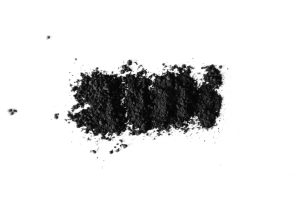Charcoal Toothpaste – Fad or Fact?
Posted by: Charlie Burrows

It’s popular, it’s fashionable and it’s reported as a fantastic way to whiten teeth and regularly keep your teeth looking clean. It’s also promoted as organic and a preventative measure against cavities. Charcoal toothpaste and activated charcoal ingredients are used across the beauty sector in face scrubs, lip balms and face masks. But is charcoal toothpaste really as clever as it is made out to be, and more importantly are we being misled about the benefits?
Activated Charcoal
Activated charcoal is a detoxifying agent which has been used historically for preventing harmful substances being absorbed by the stomach, as well as even now being used for relieving poisoned patients and those who have overdosed on drugs. It does have relieving properties and it can attract and bind chemicals and toxins to itself and perhaps this is why it’s promoted as an effective tool to fight teeth staining and for preventing tooth cavities. It’s also pushed heavily as a great way to prevent bad breath (halitosis) and the buildup of acidic plaque.
However, what isn’t advertised so much is actually how charcoal toothpaste can eventually damage enamel and doesn’t actually contain enough fluoride, in comparison to regular toothpastes, which of course is the most important ingredient in toothpaste to help prevent cavities.
Charcoal Toothpaste
So are we being lied to about charcoal toothpaste? It’s a little more complicated and it isn’t so black and white. There is one positive, undeniable fact about charcoal and its effect on teeth and that is that is does have properties which can remove staining due to its adsorption effect. It binds chemicals to itself and can remove staining quite effectively, however, apart from that one initial benefit, there are so many negatives which can impact its long term effect that actually, there are no scientifically-proven facts we can rely on 100%.
By removing staining it does it’s job effectively however, with continued use there is the possibility of it damaging enamel over time. It can also leave a residue of black charcoal elements around the gum line and coating any fillings and restorations you may have. Long term use of this toothpaste means that the abrasive nature of the charcoal which so effectively combats staining, ends up causing damage to the tooth.
Of course the other issue is that because some people use this toothpaste over regular toothpaste, they are missing out on the effects of the required amount of fluoride you would normally receive. Normal paste contains 1350 to 1,500 parts per million of fluoride to protect teeth and charcoal paste only has a portion of this amount, meaning that regular brushing over time will result in cavities and future dental problems because of the lack of fluoride.
So should we use it?
Teeth whitening is effective with correct professional techniques, usually through your dentist. Admittedly, at-home kits are quite useful for maintaining whiter teeth but ultimately we recommend visiting your dentist for thorough treatment. Charcoal has its benefits as an anti-microbial agent as well as offering great benefits in face masks and other beauty products but the fact is, long term use isn’t recommended and there just isn’t enough factual, scientific proof to back up the media claims about it’s effectiveness. Don’t forget, charcoal is a toxin in itself and could cause other issues and so for the marginal benefits in the short term, it’s just not a viable replacement for proper, fluoride-based recommended toothpastes in the long term.
- Sugar: A Plague for Athletes - 24th February 2020
- The Dangers of Illegal Teeth Whitening - 19th February 2020
- What is Gingivitis? - 23rd January 2020

